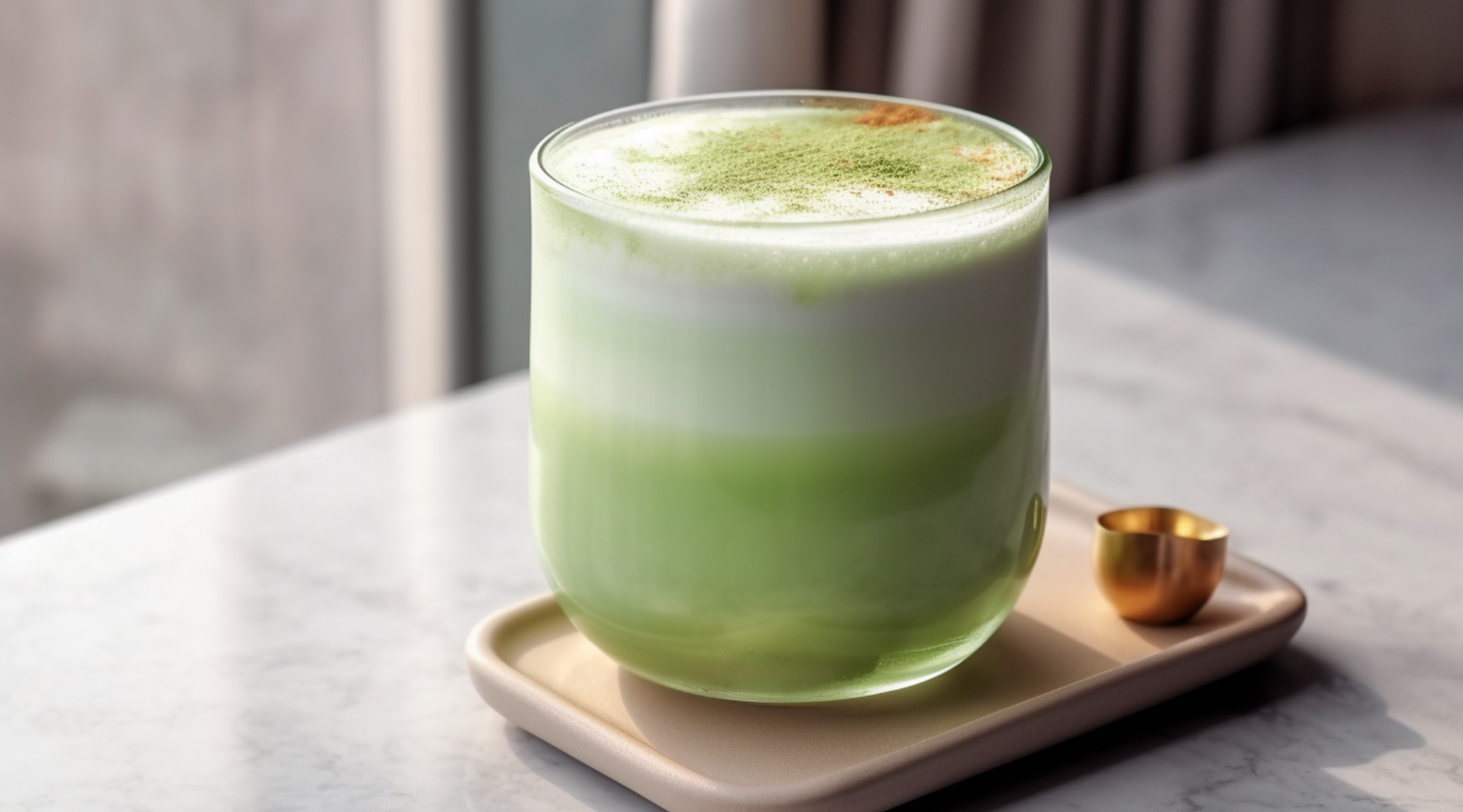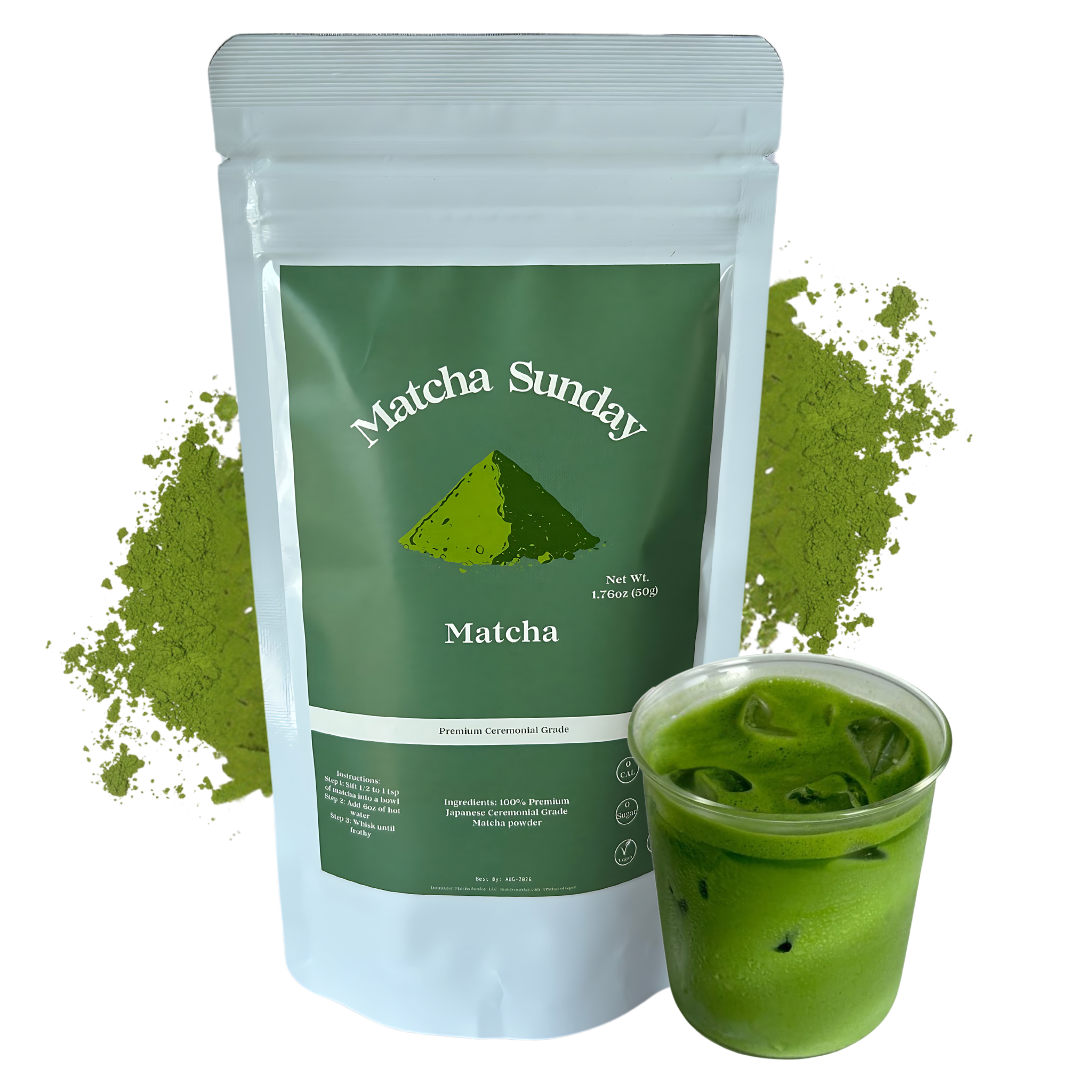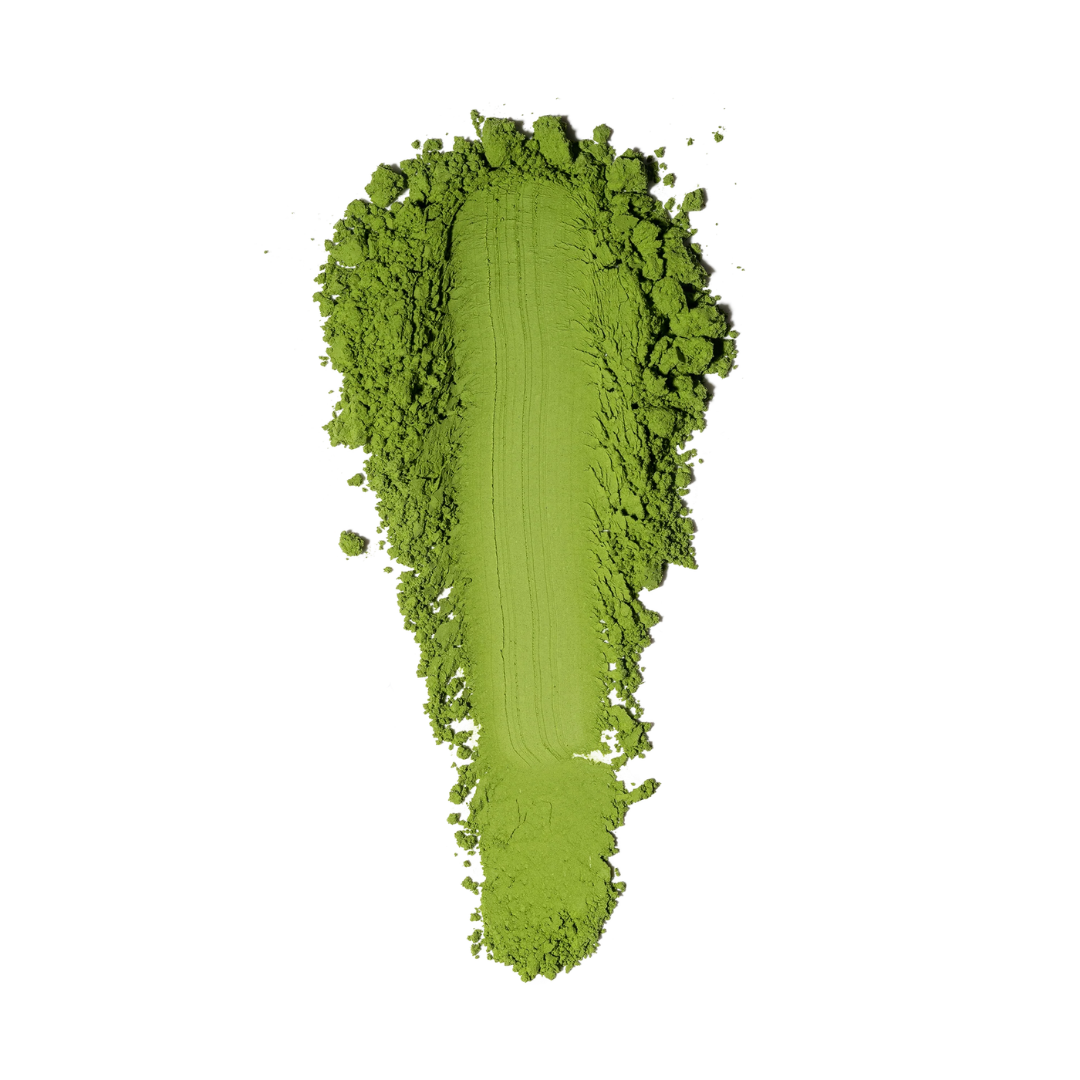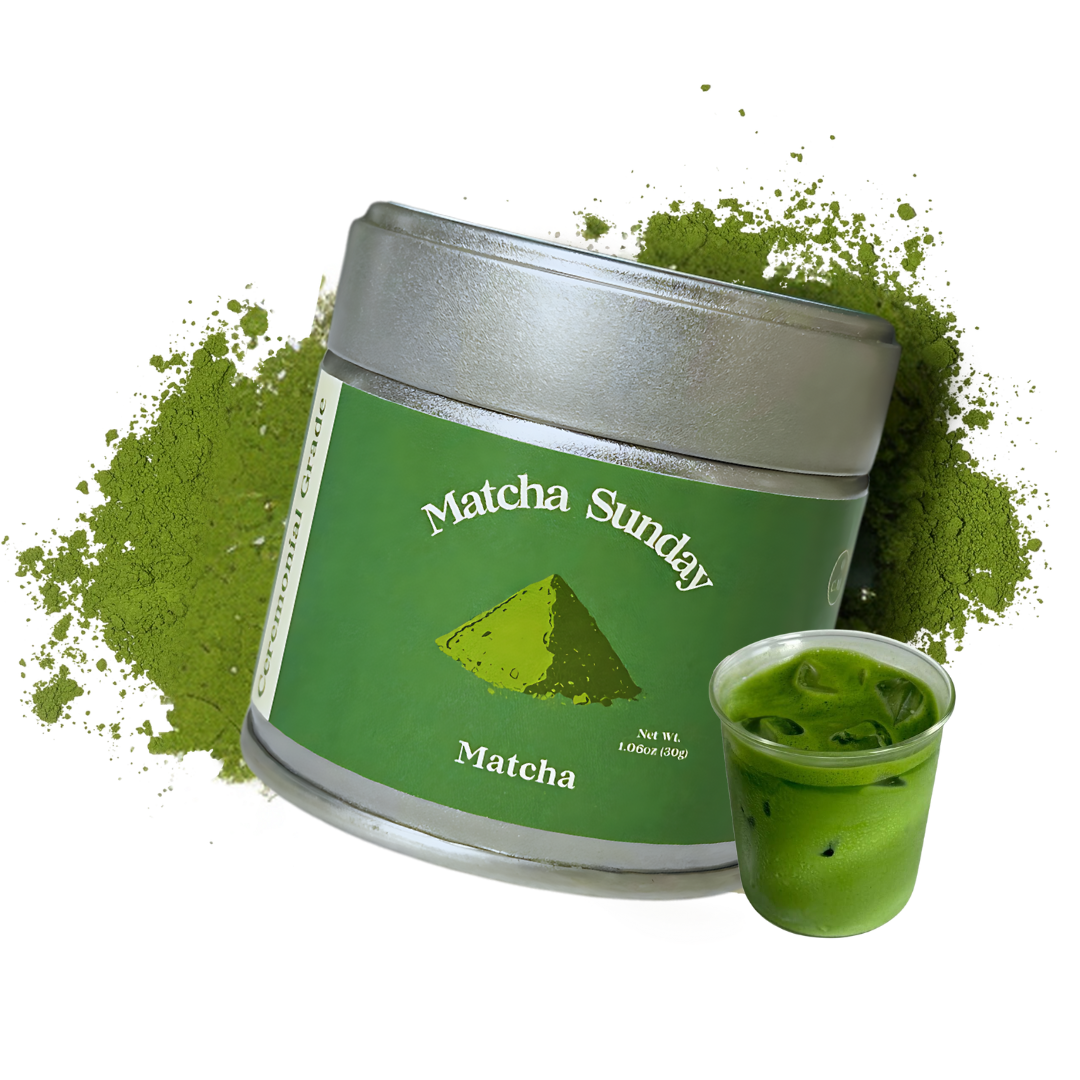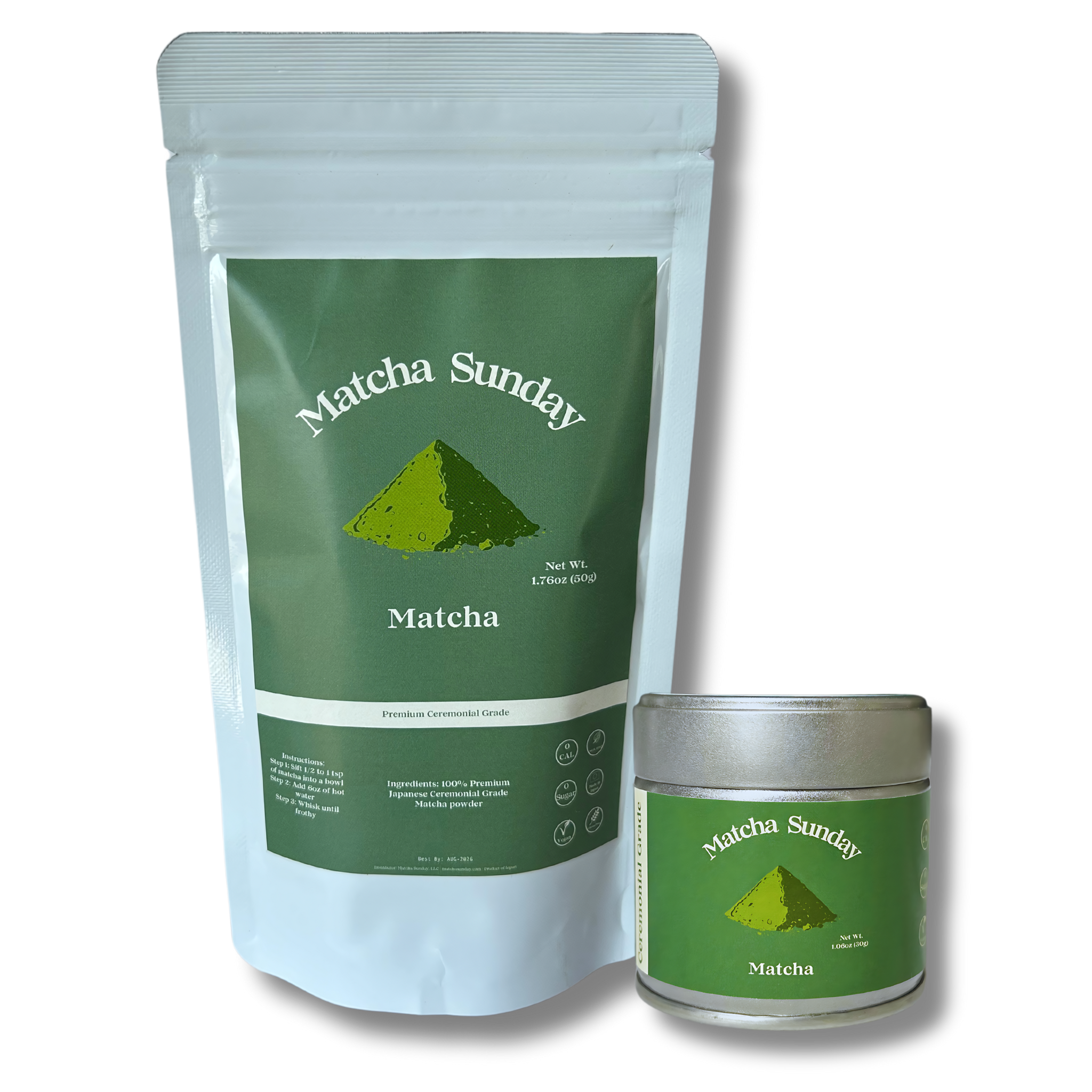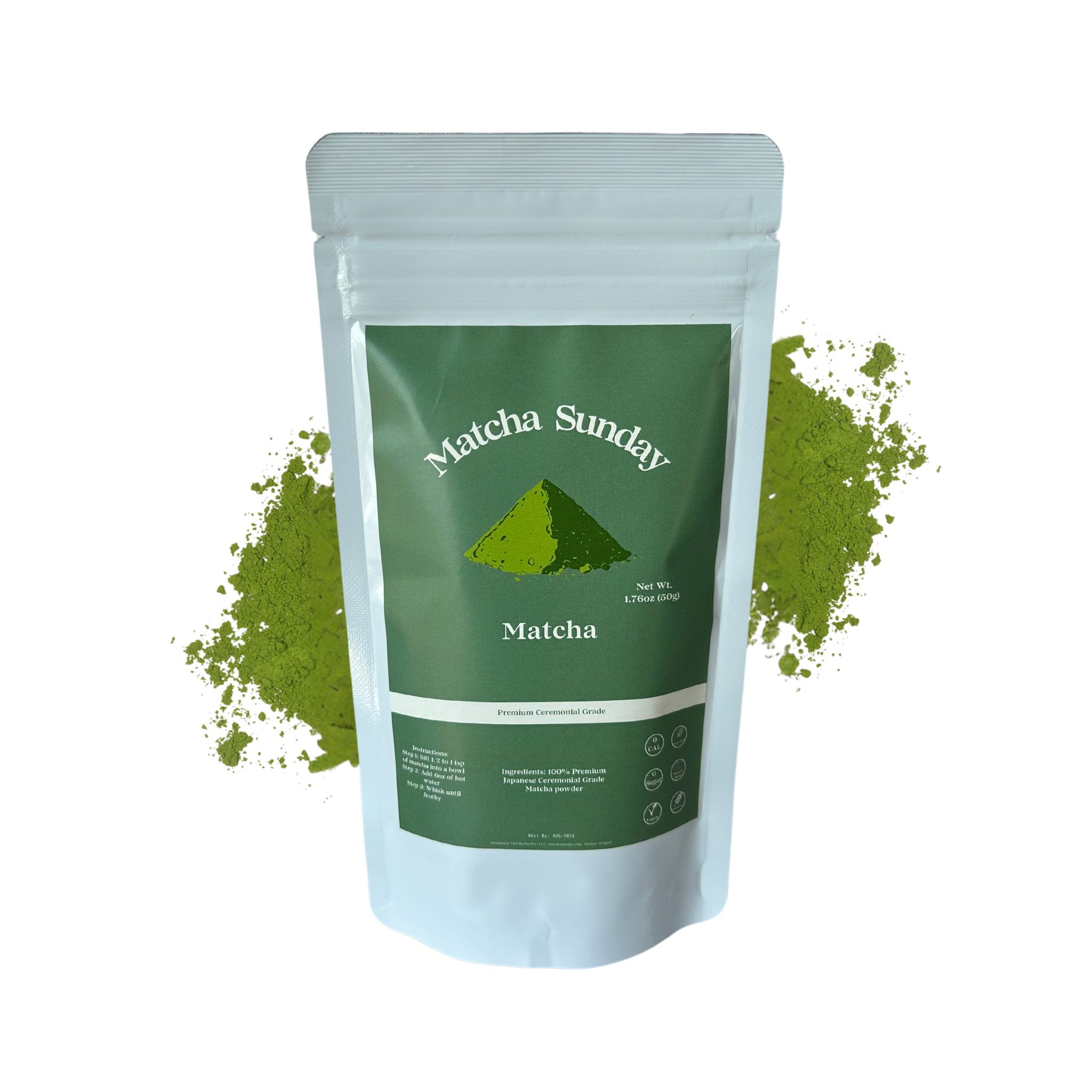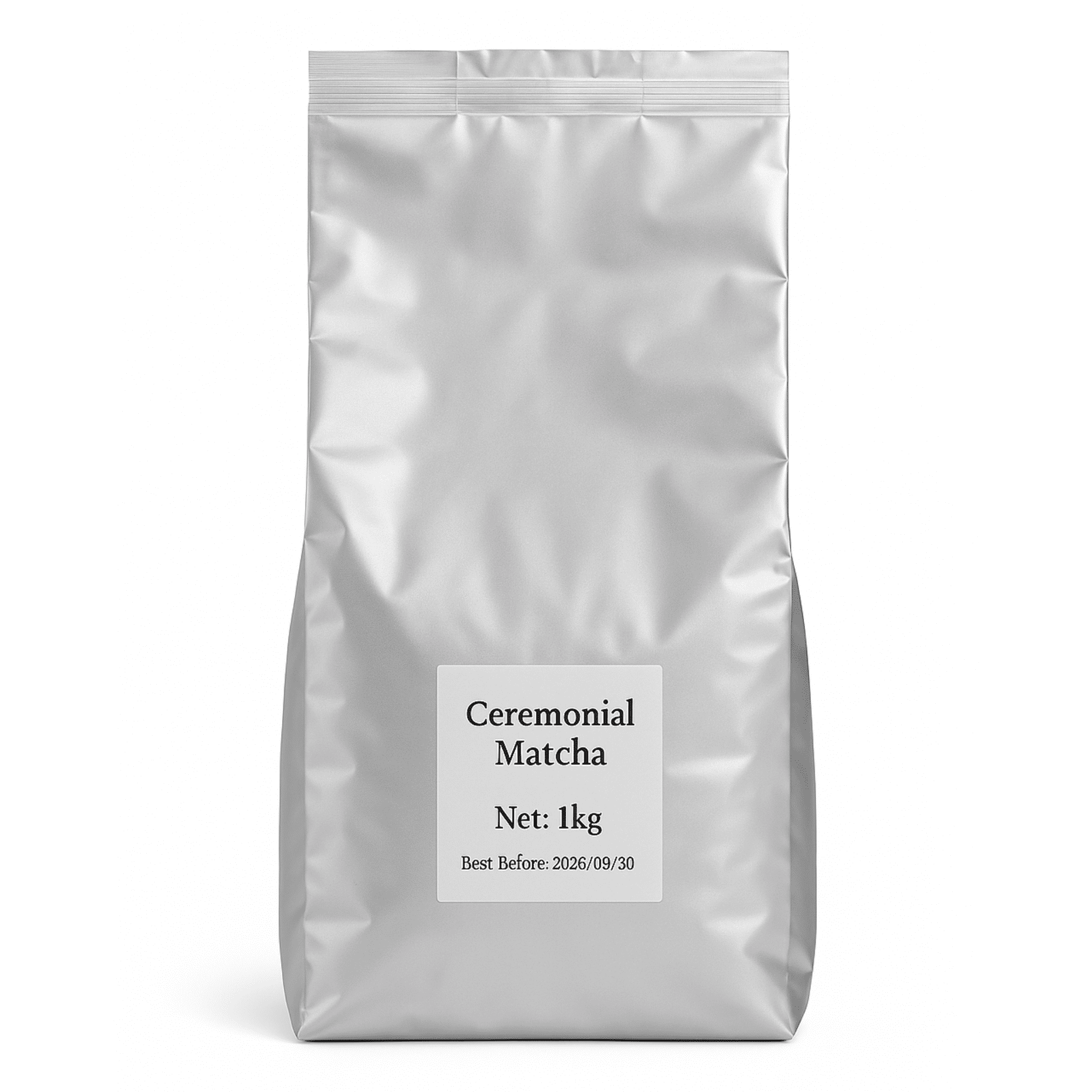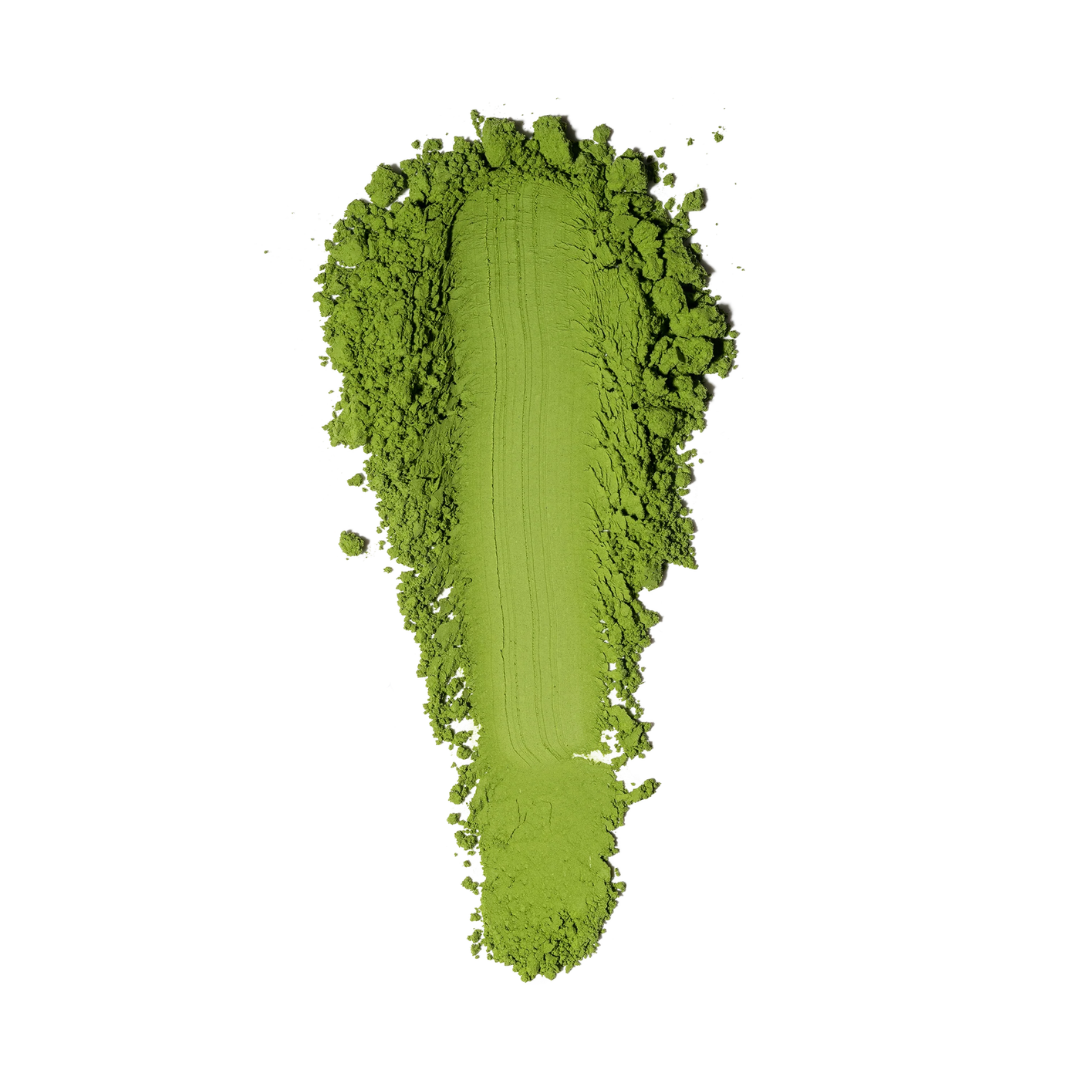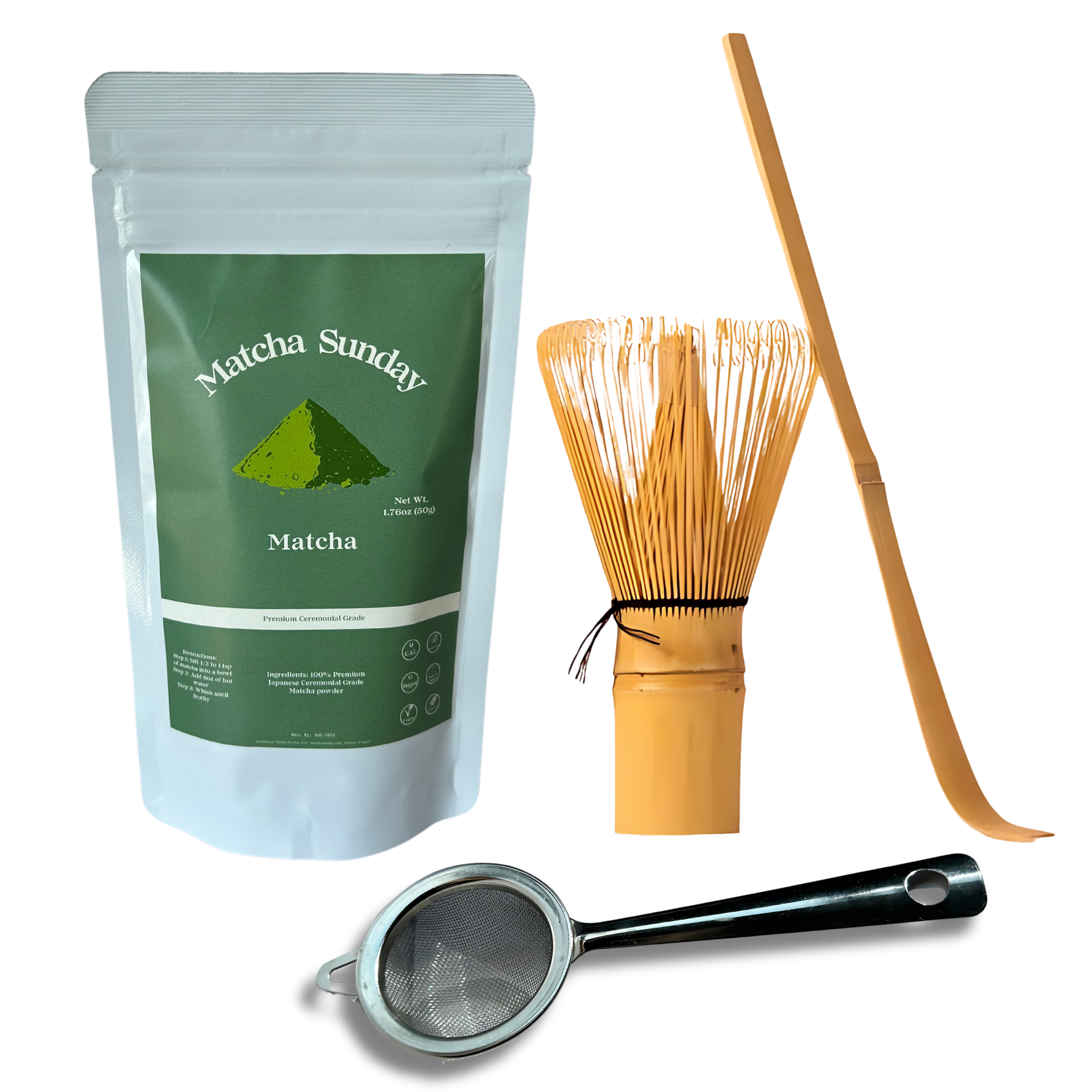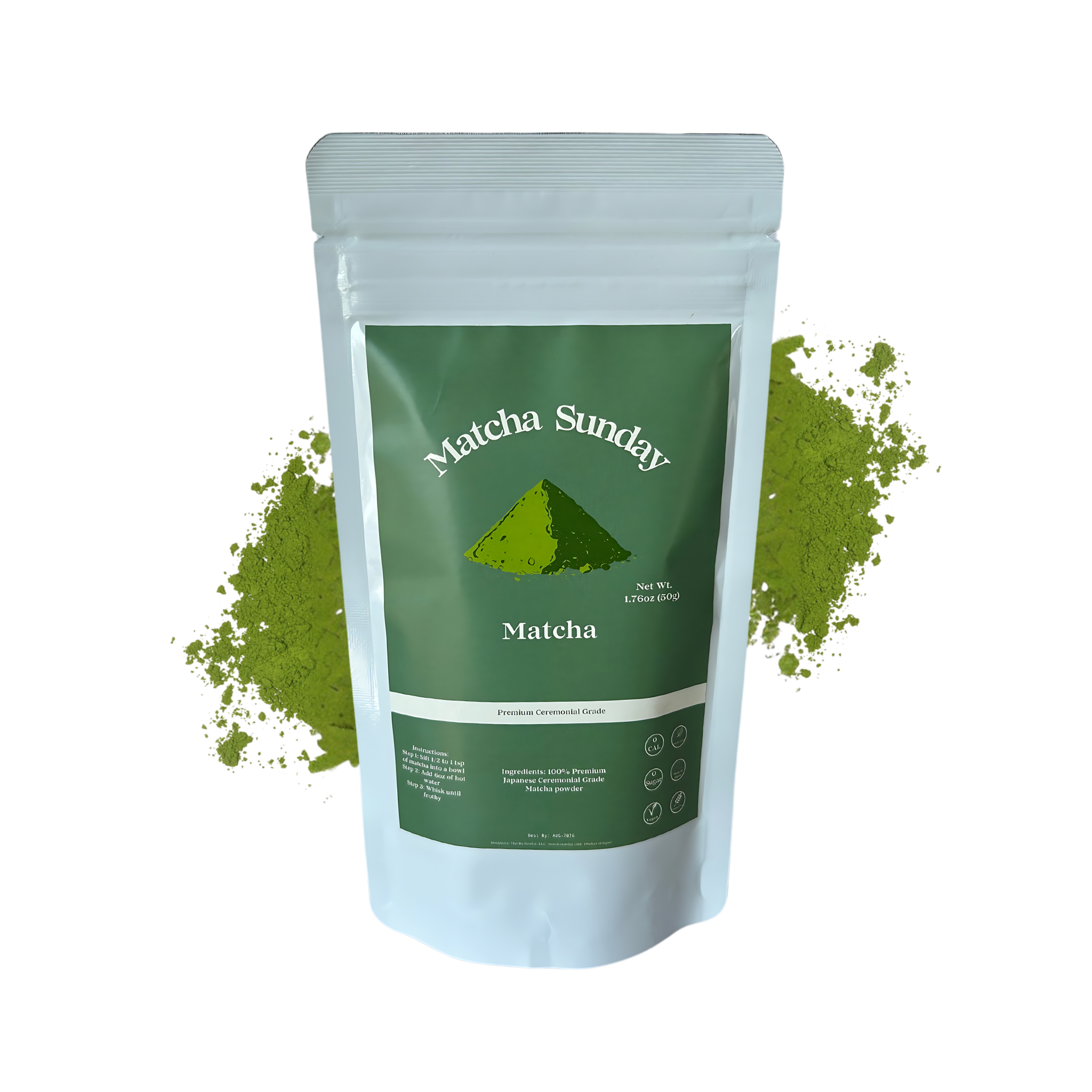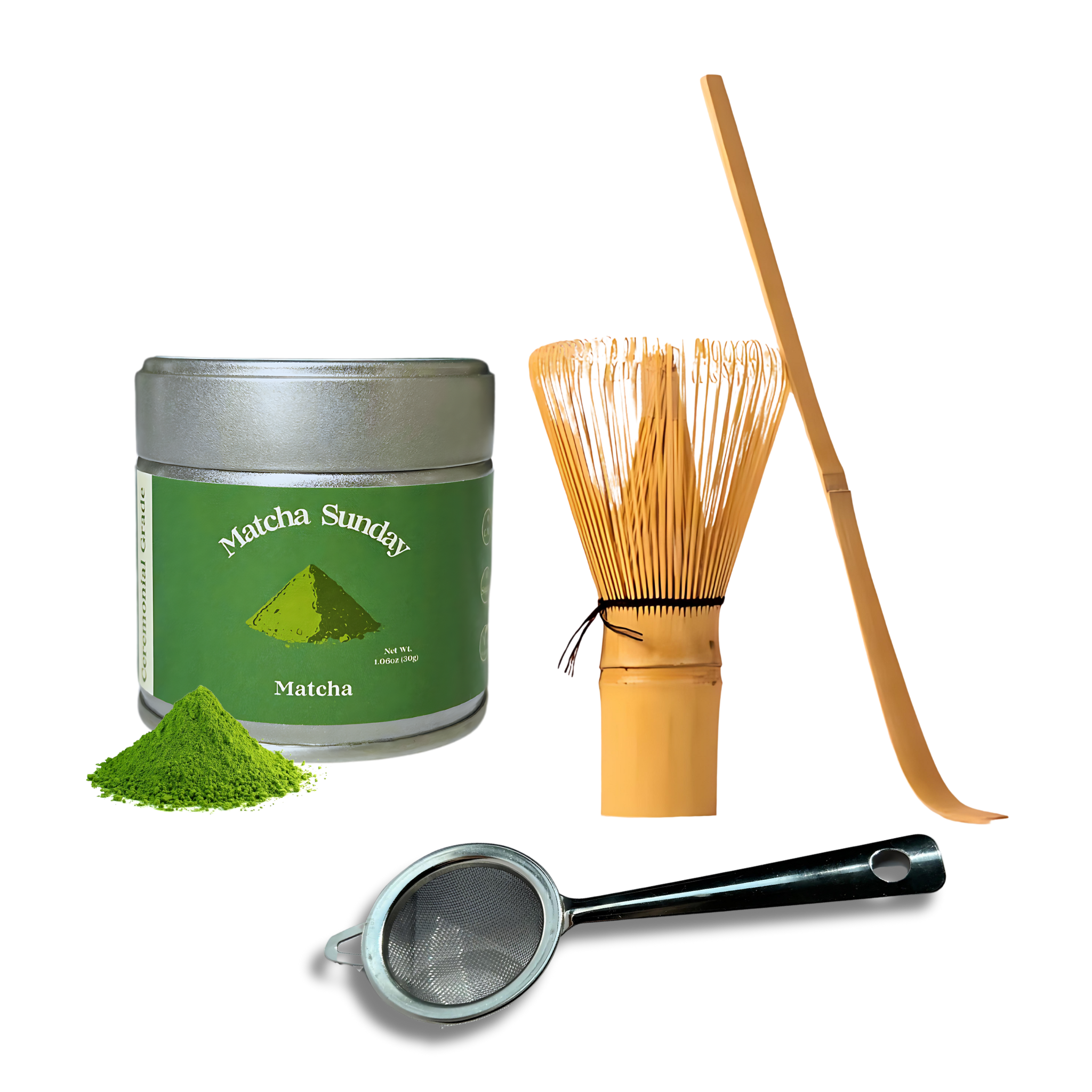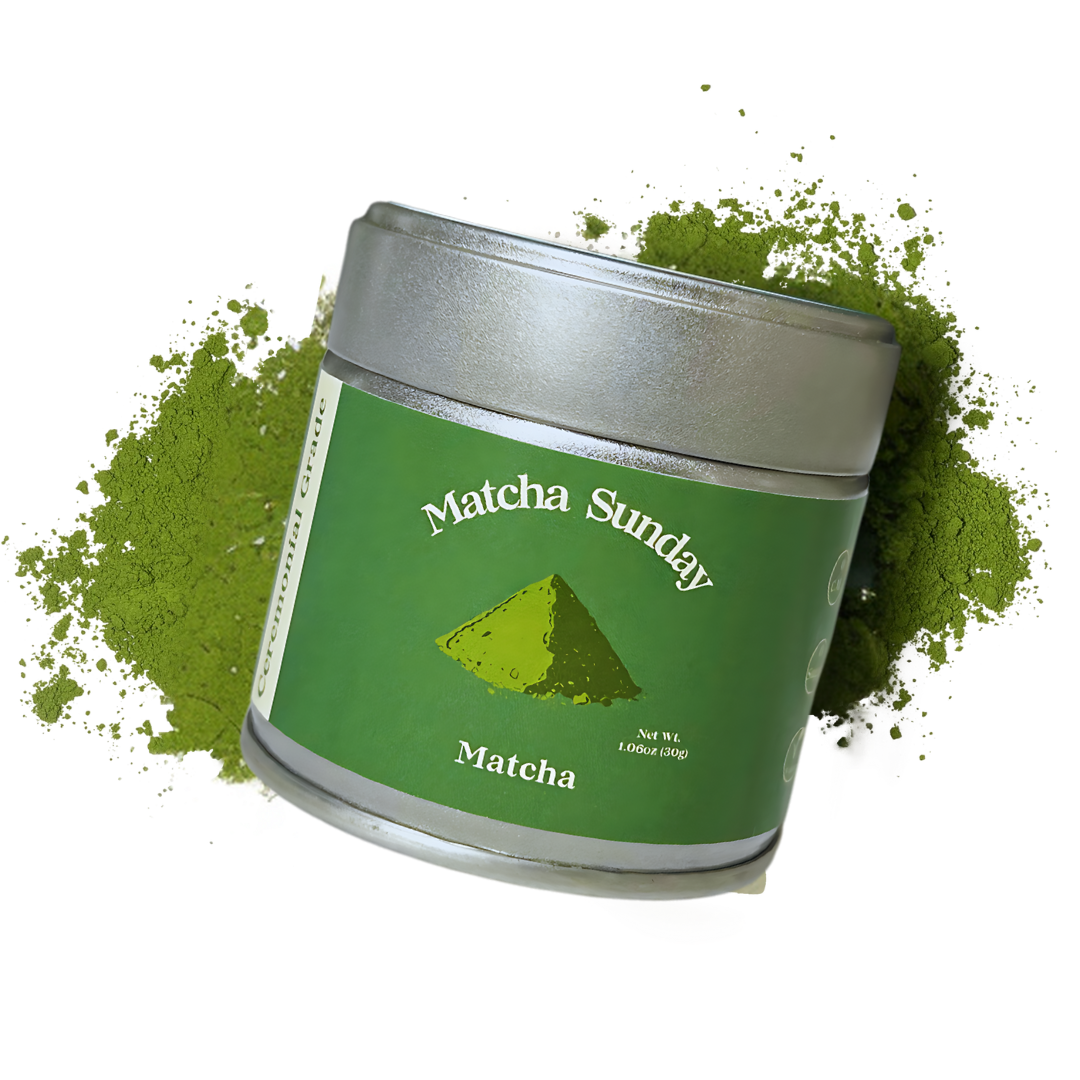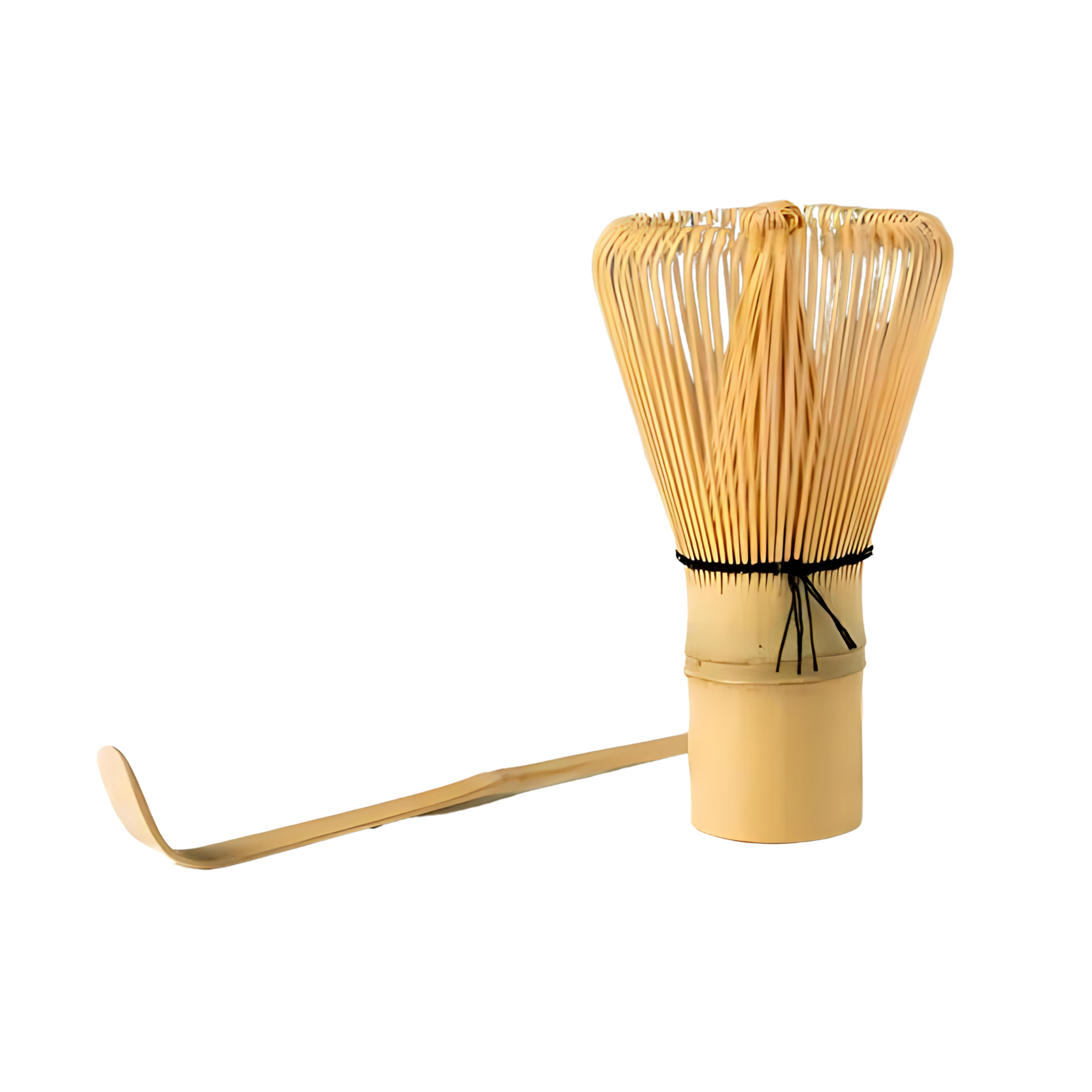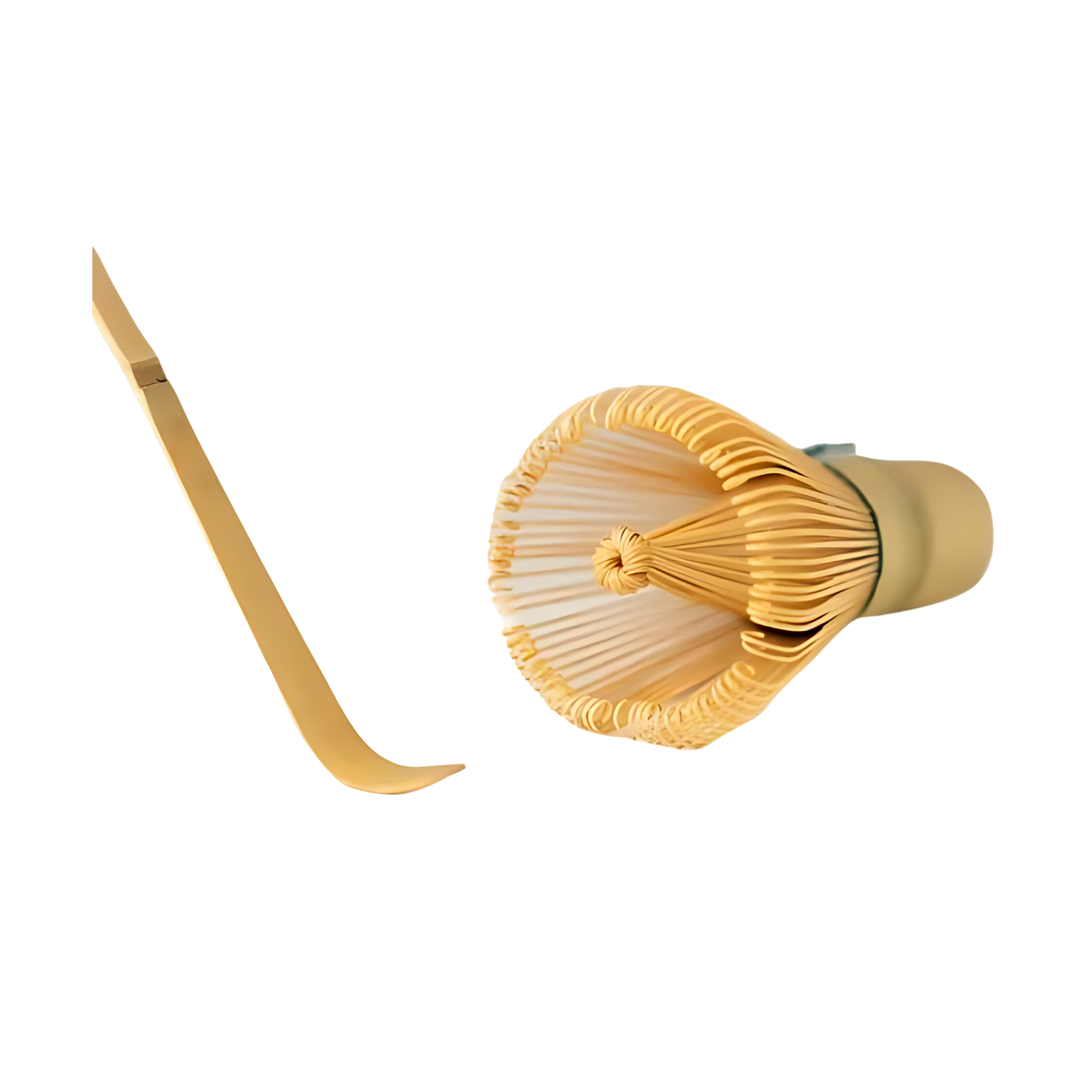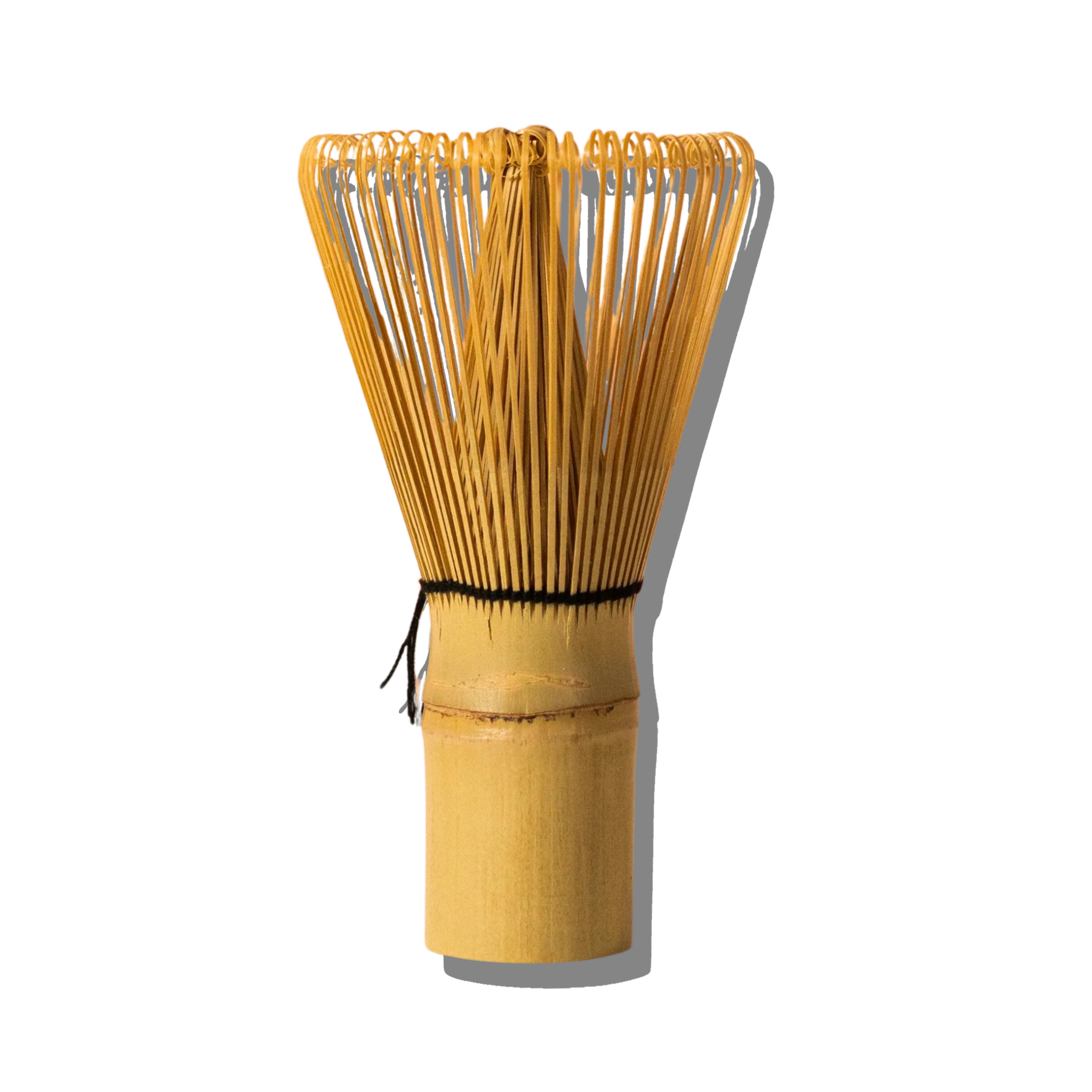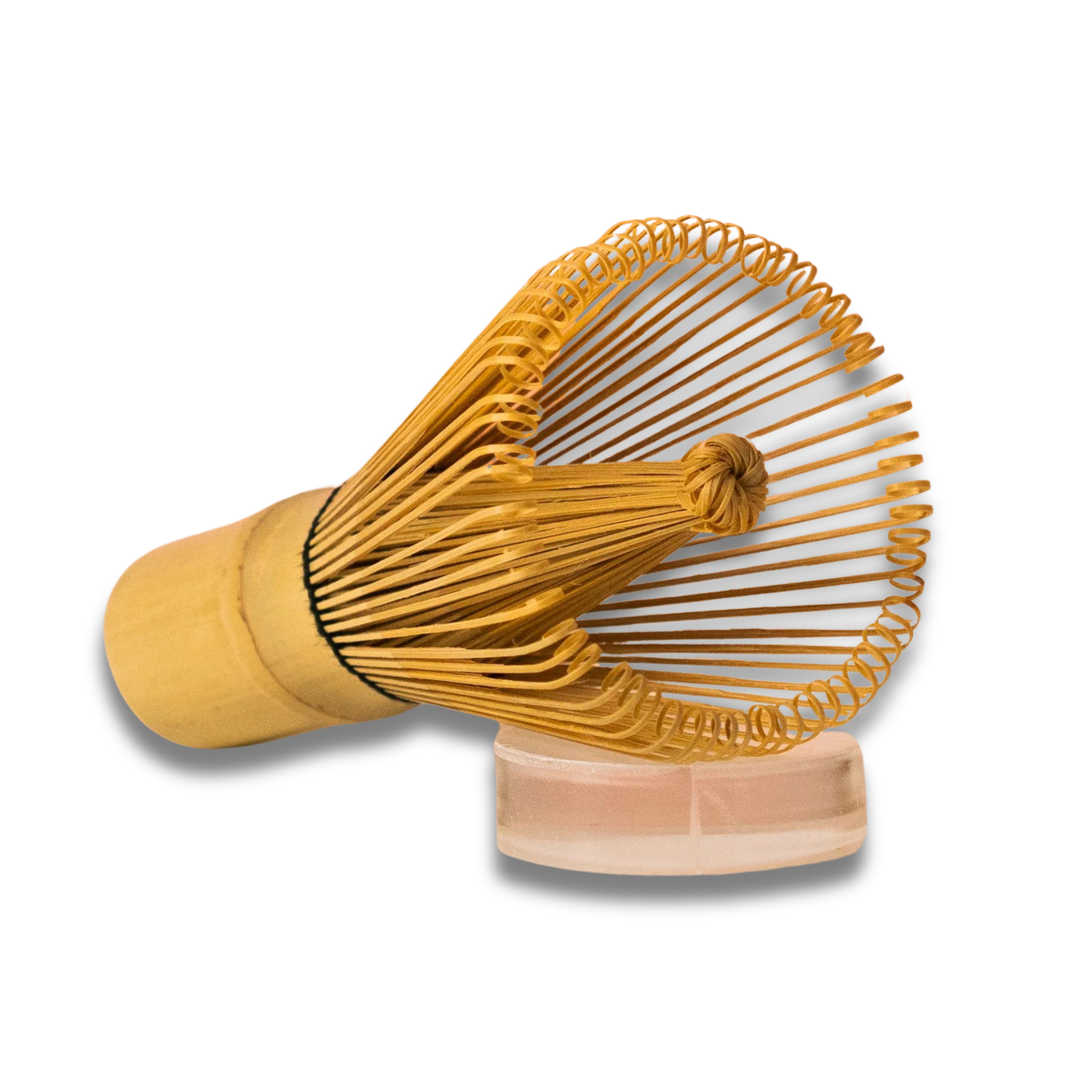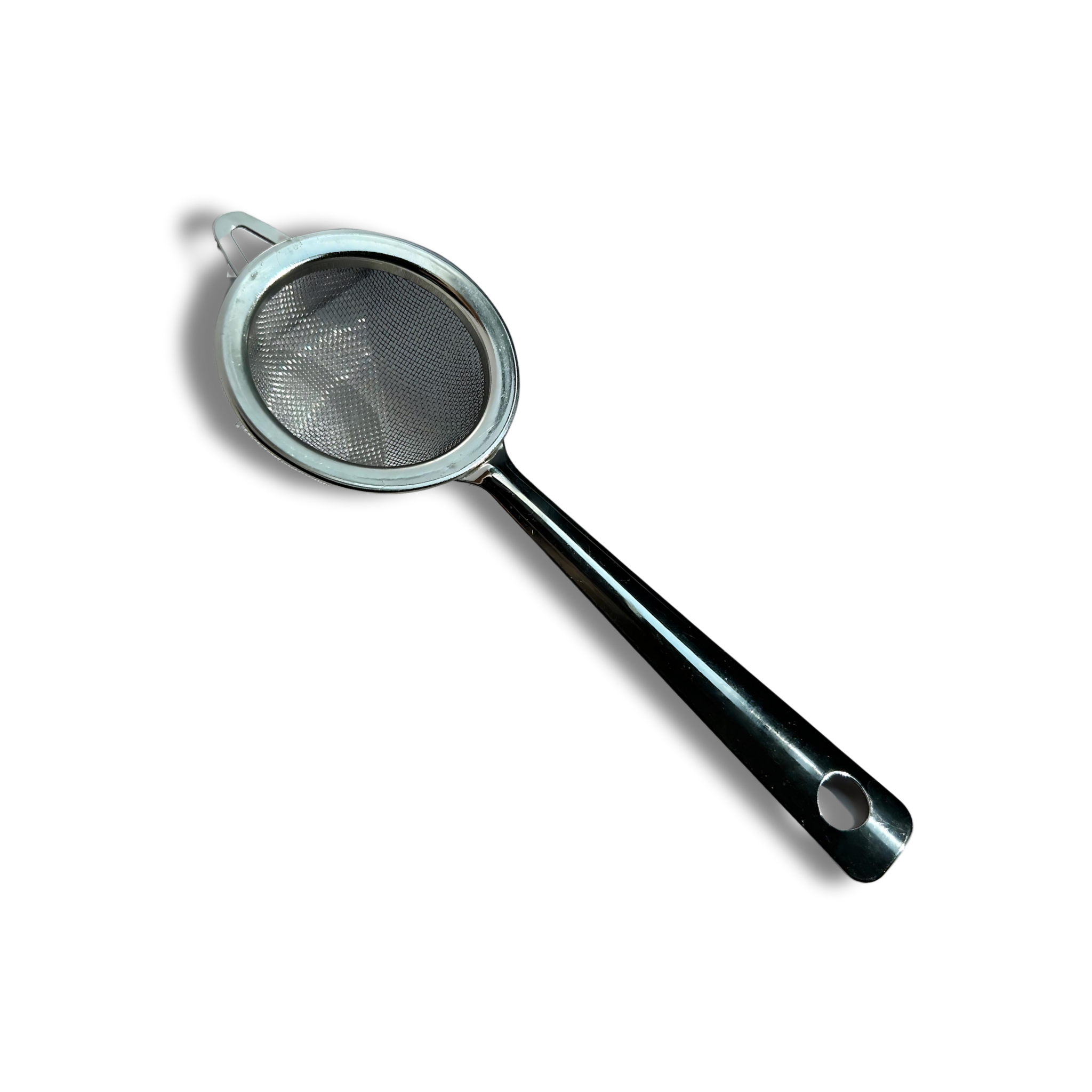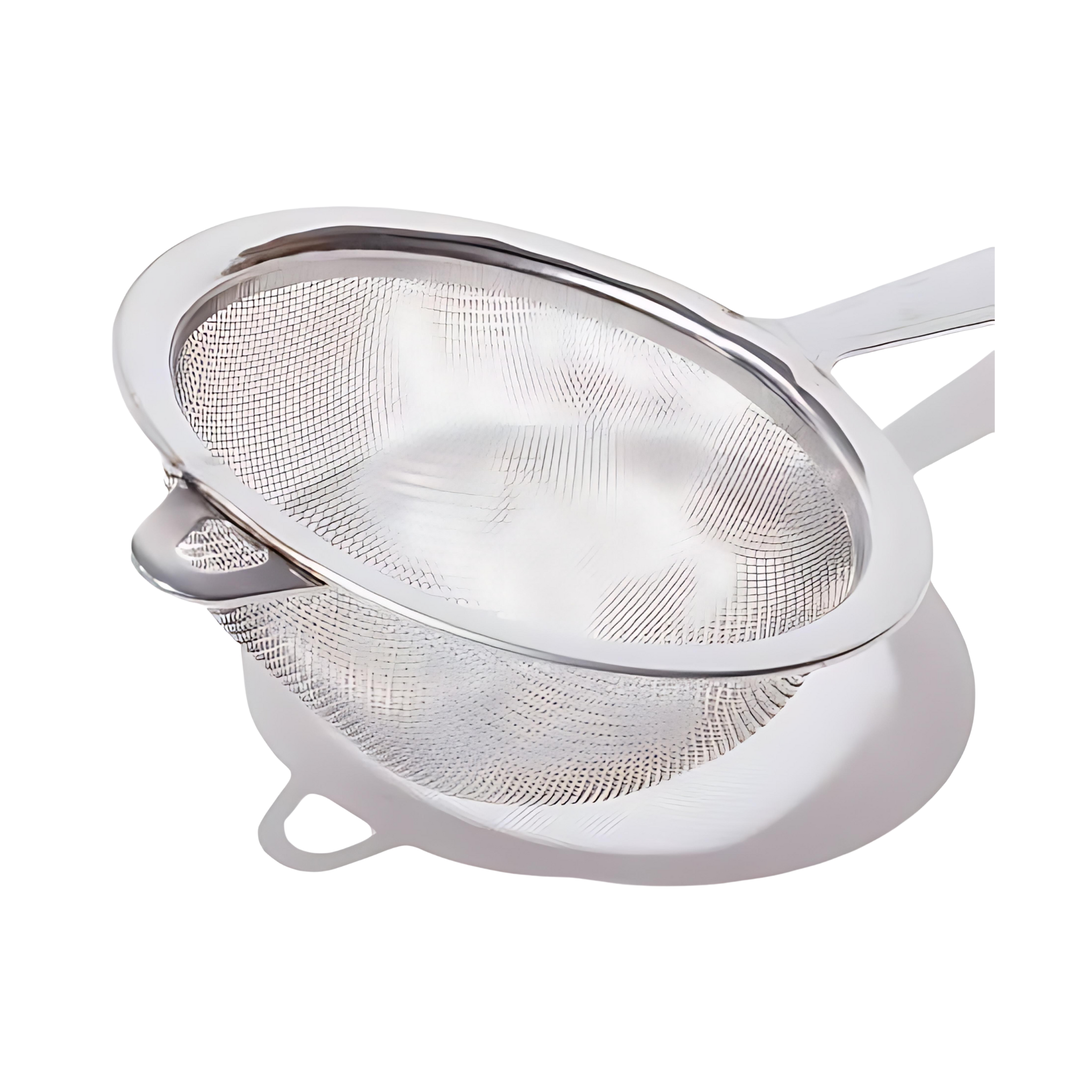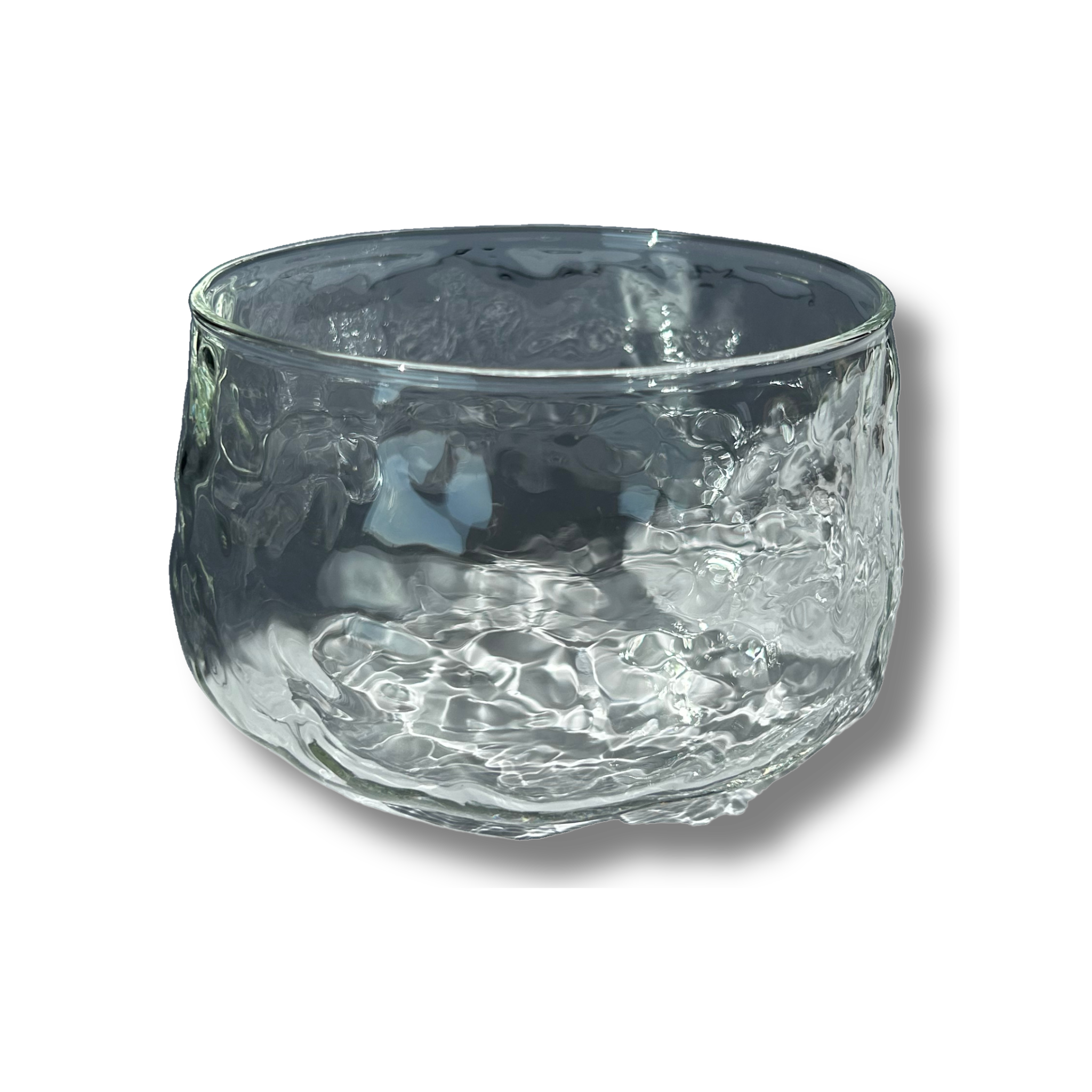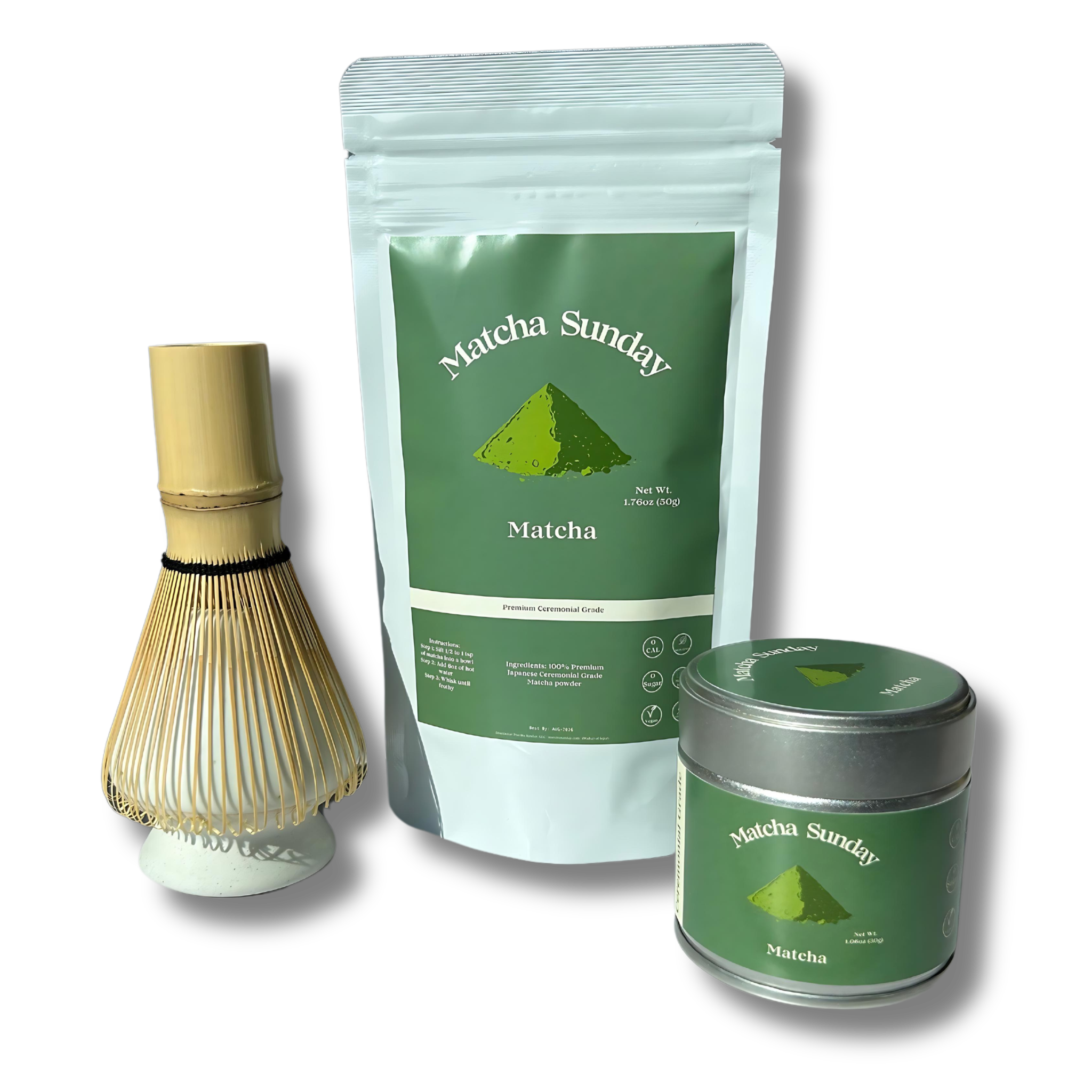Matcha, the vibrant green tea powder, has surged in popularity over recent years. Renowned for its health benefits and unique flavor, it’s a favorite among tea enthusiasts and health-conscious individuals alike. One of the most common questions about this powdered tea is, "Does matcha have caffeine?" The short answer is yes, matcha does contain caffeine. However, there is much more to explore about matcha caffeine, including its unique properties, how it compares to other caffeinated beverages, and its effects on the body. Let's dive into the details and uncover the full story behind matcha caffeine.
What is Matcha?
Definition and Origins
Matcha is a type of green tea made from finely ground, specially grown and processed green tea leaves. The origins of matcha date back to ancient China and Japan, where it was traditionally used in tea ceremonies. Unlike regular green tea, where the leaves are steeped and then discarded, matcha involves consuming the entire leaf, providing a more potent source of nutrients and caffeine.
Production Process
The production of matcha involves several meticulous steps. The tea plants are shade-grown for about three weeks before harvest, which increases chlorophyll production and enhances the amino acid content, particularly L-theanine. After harvesting, the leaves are steamed, dried, and stone-ground into a fine powder.
Matcha Caffeine Content
Caffeine Levels in Matcha
Matcha contains a significant amount of caffeine. On average, one teaspoon (about 2 grams) of matcha powder contains approximately 70 milligrams of caffeine. This is higher than the caffeine content in a typical serving of green tea, which averages around 20-30 milligrams, but lower than a cup of coffee, which contains about 95 milligrams of caffeine.
Comparison to Other Beverages
When comparing matcha to other caffeinated beverages, it's essential to consider not just the caffeine content but also the way caffeine interacts with other compounds in the drink:
- Matcha vs. Coffee: Matcha provides a more sustained energy boost compared to coffee. While coffee delivers a quick jolt of energy, matcha's caffeine is released more slowly due to the presence of L-theanine, leading to a steadier energy boost without the crash.
- Matcha vs. Black Tea: Black tea typically contains around 40-60 milligrams of caffeine per cup. Matcha, with its higher caffeine content, offers a more potent source of caffeine along with additional health benefits from its rich antioxidant profile.
- Matcha vs. Energy Drinks: Energy drinks can contain anywhere from 70 to 200 milligrams of caffeine per serving, often accompanied by added sugars and artificial ingredients. Matcha offers a natural alternative with additional health benefits.
How Matcha Caffeine Works
L-Theanine and Caffeine Synergy
One of the unique aspects of matcha caffeine is its combination with L-theanine, an amino acid found in tea leaves. L-theanine promotes relaxation and reduces stress without causing drowsiness. This combination leads to a calm, focused energy, often referred to as a "zen" feeling, making matcha an ideal choice for those seeking a balanced energy boost.
Absorption and Effects
The caffeine in matcha is absorbed more slowly compared to coffee. This slow absorption is due to the presence of catechins, antioxidants that bind to caffeine molecules. As a result, matcha provides a gradual increase in energy levels over several hours, avoiding the sudden spikes and crashes associated with other caffeinated beverages.
Health Benefits of Matcha Caffeine
Enhanced Mental Clarity and Focus
The combination of caffeine and L-theanine in matcha has been shown to improve mental clarity, focus, and cognitive performance. This makes matcha a popular choice among students, professionals, and anyone looking to enhance their concentration and productivity.
Antioxidant Properties
Matcha is rich in antioxidants, particularly catechins like EGCG (epigallocatechin gallate). These antioxidants help protect the body against free radicals, reduce inflammation, and support overall health. The presence of caffeine enhances these benefits by improving antioxidant absorption.
Support for Weight Management
Matcha caffeine can aid in weight management by boosting metabolism and increasing fat oxidation. Studies have shown that the combination of caffeine and catechins in matcha can enhance calorie burning, making it a valuable addition to a weight loss regimen.
How to Enjoy Matcha Caffeine
Traditional Preparation
The traditional method of preparing matcha involves using a bamboo whisk (chasen) to blend the matcha powder with hot water until it becomes frothy. This ceremonial preparation not only enhances the flavor but also allows for the full appreciation of matcha’s unique qualities.
Modern Variations
Matcha's versatility extends beyond traditional tea. It can be enjoyed in various forms, including:
- Matcha Lattes: Combining matcha with steamed milk or a plant-based milk alternative.
Purchase Ceremonial Grade Matcha Powder:
- Matcha Smoothies: Blending matcha with fruits, vegetables, and other superfoods for a nutritious boost.
- Matcha in Cooking and Baking: Incorporating matcha into recipes for cakes, cookies, and other treats.
FAQs
Does matcha have more caffeine than coffee?
No, matcha typically contains less caffeine than coffee. A serving of matcha has about 70 milligrams of caffeine, while a cup of coffee contains around 95 milligrams.
Is the caffeine in matcha better for you than in other drinks?
The caffeine in matcha is considered to be better tolerated by many people due to its combination with L-theanine, which promotes calmness and reduces the likelihood of jitters and crashes associated with other caffeinated beverages.
Can I drink matcha every day?
Yes, drinking matcha every day is generally considered safe and can be beneficial due to its high antioxidant content and other health-promoting properties. However, it's essential to moderate intake to avoid excessive caffeine consumption.
Does matcha caffeine cause jitters?
Matcha caffeine is less likely to cause jitters compared to coffee due to the presence of L-theanine, which helps promote a calm, focused state of mind.
How much matcha should I consume for optimal benefits?
A typical serving of matcha is 1-2 teaspoons per day. Consuming this amount provides a healthy dose of caffeine and antioxidants without overdoing it.
What are the side effects of matcha caffeine?
While matcha is generally well-tolerated, excessive consumption can lead to side effects such as insomnia, headaches, and digestive issues due to its caffeine content. It's important to consume matcha in moderation.
Matcha, with its vibrant color and myriad health benefits, indeed contains caffeine. However, the caffeine in matcha is unique due to its combination with L-theanine, providing a balanced and sustained energy boost. Whether you’re looking to enhance your focus, support weight management, or simply enjoy a delicious and healthy beverage, matcha is a fantastic choice. Embrace the calm energy of matcha caffeine and make it a part of your daily routine for a healthier, more balanced lifestyle.
Visit our website: Matcha Sunday.

